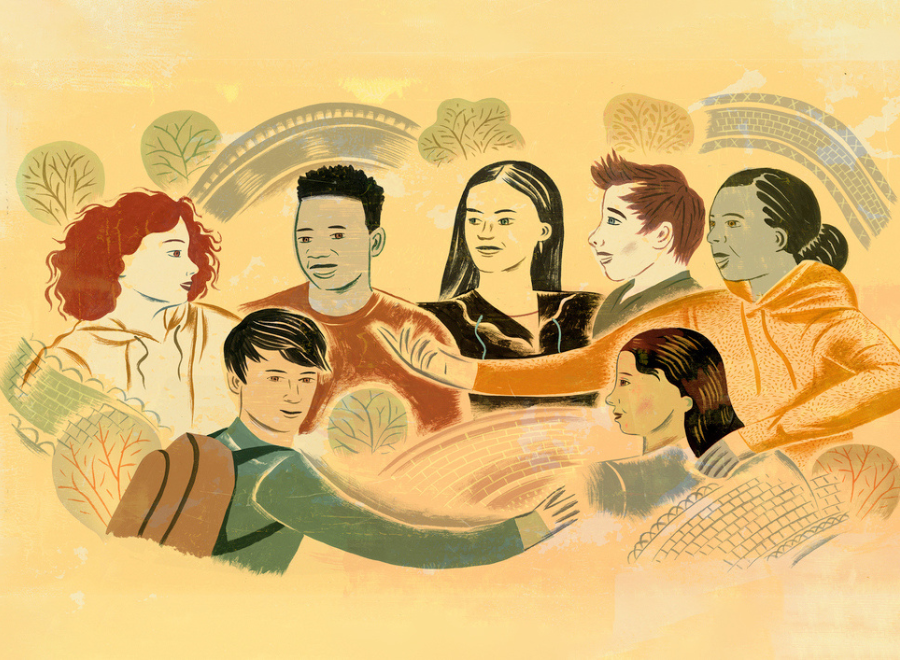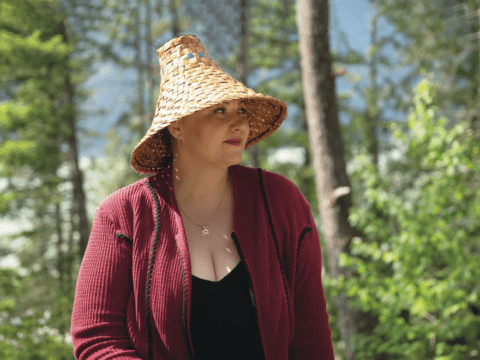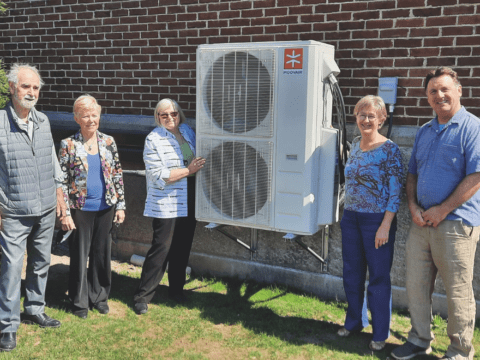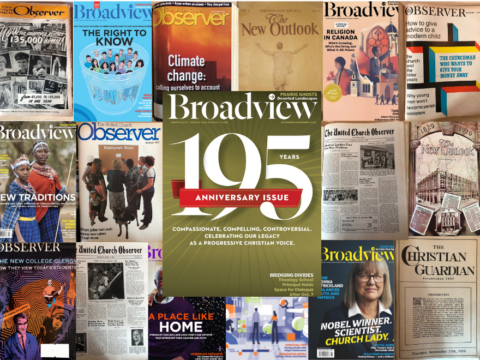Hamas’s attack on Israel on Oct. 7, 2023, was an earth-shattering moment for many at Emmanuel College. For the past 15 years, The United Church of Canada’s seminary, part of Victoria University in the University of Toronto, has carried out its vision of being a leading inter-religious theological school. People of different faiths come and learn to become more deeply rooted in their own traditions while engaging with the beliefs and practices of other traditions. The war playing out in the Middle East was a real test for that vision.
Since the war began, many people have called on Emmanuel College and me as principal to make a public statement. Many organizations, including The United Church of Canada, have made public statements. These can be helpful. However, they can be dangerous and counterproductive as well. No matter how carefully they are written, sometimes with limited information, they can end up being misinterpreted and misunderstood. In evolving situations, good information can be hard to come by. And any small misstep, once it is out in the public, cannot be taken back.
You may unsubscribe from any of our newsletters at any time.
My approach as principal, therefore, has been to do my best to support and hold space for leadership to emerge from within the community, rather than make a statement. As a community, we held a weekly vigil during the fall of 2023. Regular Jewish-affinity and Muslim-affinity groups have gathered at Victoria University. During an encampment at the University of Toronto, some Emmanuel students helped set up a tent and provided spiritual support. I met with Jewish students to listen to them over a shared meal. I also met with Muslim students and faculty to hear from them as we broke bread together. Our efforts were not without fault. As an institution, we stumbled. We felt stuck. I struggled. But the listening has been good. I have grown in appreciation for the depth of the problem and the suffering. Many of our students and faculty have likewise grown in understanding and empathy.
Not everyone at Emmanuel is affected by this conflict or is experiencing its challenges to the same degree or in the same way. Students and faculty who belong to Muslim and Jewish communities are affected the most intensely. For example, we have among our Muslim students someone who has lost many family members in Palestine due to bombing by Israeli military forces. One of our Jewish students had just sent her son, a recent high school graduate, to study in Israel when the news of the Hamas attack broke.
These stories of people at Emmanuel only show a glimpse of the inexpressible pain and grief that many in the region are carrying. Relationships have been under strain. It is often too difficult for students living with their own trauma to hear the painful histories triggered in others.
More on Broadview:
Both Jewish and Muslim students have expressed a deep fear of being targeted. They have had to confront hate crimes that are happening close to their home, their synagogue or their mosque. Since the attack on Oct. 7, reports of crimes against Jewish and Muslim people have increased across Canada. Antisemitic and Islamophobic hate-motivated attacks have Emmanuel students, faculty and alumni on edge.
Yet, the fear and the despair cannot extinguish the hope or expel the love for one another. And there have been acts of great courage and grace within our community.
Early one Saturday in November, one of our Muslim students was at the Toronto Islamic Centre for a prayer gathering when a 28-year-old man made a hate-motivated assault on worshippers there. The day before that attack, a Jewish Hebrew school in the city had to close after receiving antisemitic bomb threats by email.
One of our Jewish students heard on the news about the incident at the Islamic Centre and called the Muslim student to see if he was doing all right. Not only had these two been classmates, but they had also worked together at the Multi-Faith Centre of the University of Toronto. On the phone, before the Jewish student could say anything, the Muslim student asked how they and their Jewish community were doing because he was aware of the antisemitic threats on the school. This Muslim student showed care for the Jewish community’s safety, despite being shaken by the attack at his own place of worship. In that moment on the phone, the world was not divided but rather united by mutual care. Their friendship cast out fear and broke down barriers of prejudice.
Friendship matters. It is true that it takes time to build relationships and that friendship does not make a difference in the world overnight. It is also true that building relationships may seem futile in the face of conflict like the one in the Middle East. Talking about friendship sounds rosy and naive. Yet friendship can ground us and encourage us not to give up. Strong relationships can help us find the way out of powerlessness and indifference and move us toward wisdom.
But can we be friends when we are seen as enemies? Or when our lived experiences are so different? Since the Oct. 7 attack, I realized that befriending others actually is the work of theological education. It’s a brave act of faith.
So what does it mean to be a friend?
Befriending for Christians includes naming a generations-long, institutionalized Christian hatred of Jews and Muslims in the forms of antisemitism and Islamophobia. This hatred is Christianity’s oldest sin. It is the most difficult piece of history that Christians need to own and wrestle with.
Befriending Jews means learning thoroughly about their intergenerational trauma from thousands of years of oppression, reaching back to the Roman Empire, the pogroms in Europe and the Second World War.
Befriending Muslims is appreciating deeply the oppression that Muslims and others in Palestine have been experiencing since 1948 when they were expelled from their homes.
Befriending as a work of theological education is tackling these complex and emotionally charged issues in intersectional, sustaining and persisting ways. These issues are so entangled and so old that we need to hold spaces for active listening. At the same time, we need to cultivate critical engagement, foster empathy and learn to put on someone else’s shoes with patience and grace.
This work of befriending is exhausting at times. Sometimes, you need to take care of yourself, too, give yourself permission to step back. In my case, I realized that I could not keep going when I constantly woke up in the middle of the night and was unable to go back to sleep. I turned down several requests to peer review articles and to review faculty of other institutions, even though these are important roles I usually take on. I resigned from Broadview’s board of directors, even though I enjoyed and appreciated working with the board. I committed myself to being physically active, including swimming regularly, and I indulged my need for creativity and relaxation by cooking and by watching Korean dramas.
But practising self-care does not have to be solo work. It can be done communally through storytelling, praying, reading scriptures together and sharing a meal. That, at least, has been my approach, inadequate as it is. And I have seen some good come of it. Here at Emmanuel, students from different religious traditions are sending special care notes to each other. Faculty and staff are listening to each other’s personal stories, sharing emotions, shedding tears — together.
***
Rev. HyeRan Kim-Cragg is the principal of Emmanuel College at Victoria University in the University of Toronto, the largest theological school associated with The United Church of Canada.
This story first appeared in Broadview’s October/November 2024 issue with the title “In the Face of Conflict.”














